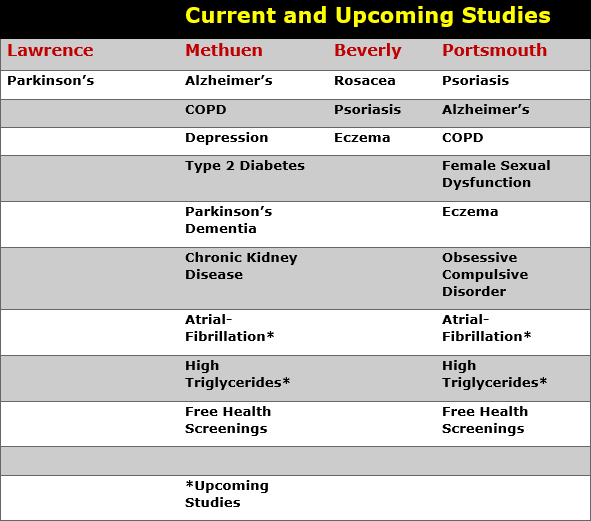Eczema flare ups can really get under your skin (pun intended). So, learning what can cause a flare up (worsening of symptoms) is a vital step in reducing the number of reoccurrences.
What is Eczema?
Eczema is a group of skin conditions that causes the skin to become red, itchy, and inflamed. The medical term is Atopic Dermatitis. It is estimated that over 30 million Americans suffer from eczema each year.
No one knows what causes eczema to develop for a person. Research has shown that people with eczema tend to have an overactive immune system. Research also shows that some people have a mutation in the gene that produces Filaggrin. Filaggrin is a protein that helps our bodies maintain a healthy protective layer (skin).
Flare Causes:
Below is a list of common items that can cause a flare up. Knowing these potential culprits can help you make different choices in your product purchases and daily activities.
- Temperature- With the summer sun quickly approaching, it is important to note that your skin may not like getting hot and sweaty. Even taking too hot of a bath has been listed as a flare up.
- Hold the Irritants, Please! Anything from the perfumes in hand soap, to the dyes in your laundry detergent can cause your eczema to flare. Paraphenylene-diamine, Formaldehyde, and Cocamidopropyl betaine are ingredients in household cleaners, shampoos, and dyes in certain fabrics that have been linked to eczema flare ups.
- Stress- Stress can affect your body drastically. Increases in stress levels can cause flareups.
Eczema Treatments:
In the event of a flareup, there are many treatment options available from over the counter or prescription topical and oral medications. Consult with your doctor or Dermatologist about your best options.
At ActivMed, we are committed not only to working with patients to find current treatments that will deliver the most impactful results, but also in working to develop new treatment options through clinical studies.
If you or someone you love is struggling with eczema, ActivMed currently has enrolling studies for those seeking new treatment options. Qualified candidates who participate will receive study-related care at no cost and receive compensation for travel. To learn more and see how you or someone you love may qualify for a study, click HERE
References:
https://nationaleczema.org/eczema/
https://nationaleczema.org/eczema/causes-and-triggers-of-eczema/
Shortness of breath, fatigue, reduced ability to exercise, irregular heartbeat, congested lungs … these are just a few symptoms of heart failure. The worst part about it? Currently, there is no cure.
What is heart disease?
Heart Disease doesn’t refer to just one condition, rather it refers to a multitude of heart conditions such as heart attack, coronary artery disease, atrial fibrillation, stroke and many more. It sounds deadly, but it actually doesn’t mean your heart has “stopped” or is about to stop working.
When living with heart disease, your heart does not pump blood and oxygen throughout the body the way that it should – this results in the symptoms you read above, and although it sounds like something that would be rare, it actually affects approximately 5.7 million people in the United States.

Can anyone get heart disease? Are there risk factors?
Your health is important and the choices you make when it comes to diet, exercise and health screenings play a role. However, there are some risk factors that you can’t control. Let’s take a look at some of the factors:
- Gender – males are typically at a greater risk than females
- Age – the older you get, the higher the risk
- Family History – if it runs in the family, you are more likely to get heart disease than someone who does not have a family history
- Smoking
- Uncontrolled Hypertension
- Physical Inactivity

What can I do to lower my risk?
The less “entries” you have into the “Heart Disease” drawing, the better. Meaning you should limit as much of the risk factors that are in your control as possible.
Eat Healthy – Be mindful of what types of food you’re putting into your body. It doesn’t have to be boring to eat clean, find healthy recipes here.
Exercise – Exercise isn’t just for the pro-athletes. Incorporate a style of exercise that you enjoy and try to do it 30 minutes a day or a couple of days a week. You could try walking, swimming, a fitness class, sports or even dancing.
Limit Stress – Easier said than done, but it’s very important. Those with high levels of stress and anger are at greater risk of heart attacks and strokes. Find coping mechanisms or things to do that help you calm down during stress.
Monitor Your Health – If you already have medical conditions like diabetes, hypertension, cholesterol, etc. make sure you are staying in a healthy range. Whether you have existing conditions or not, it’s always best to get an annual health screening.
Every FDA approval of new medicine starts with a medical research study, they are the key tools used to find better ways to treat and prevent medical conditions for today and the future. The providers at ActivMed Practices & Research, Inc. are currently enrolling for several clinical trials. Qualified candidates who participate will receive study-related care at no cost and receive compensation for travel. To learn more and see how you or someone you love may qualify for a study, click HERE.
ActivMed partnered with the Pentucket Players during their production of Mamma Mia! by providing free tickets to 75 area seniors.
 Our CEO, Terry Stubbs was able to get a few minutes on stage and speak about Brain Health
Our CEO, Terry Stubbs was able to get a few minutes on stage and speak about Brain Health
and the importance of getting a Memory Screening 
Our CEO, Terry Stubbs will be speaking at this year’s MAGI Clinical Research Conference 2019- East
May 5-8 in Boston, MA at the Sheraton Boston Hotel. 
The conference will have:
100+ session and workshops in six tracks: clinical operations & project management, site management, regulatory compliance, contracts, budgets & billing, and special topics.
240+ speakers with diverse expertise and backgrounds.
22+ continuing education contact hours (CME, CNE, CCB, other)
Model Agreements & Guidelines International (MAGI) is streamlining clinical research by standardizing best practices for clinical operations, business and regulatory compliance.
ActivMed Practices & Research, Inc. is a proud MAGI Blue Ribbon Site- Chapter Member
Please Join Us!
Enjoy entertainment by local musicians, including organist Scott Ness and Mark Menery singing the best of Frank Sinatra. You will also learn how and why to keep your brain healthy and how you can participate in dementia research happening in our community.
Opportunities to ask questions and sign-up for a free memory screen will be available. Join us at the historic Methuen Memorial Music Hall for a night of music, song, and learning.
Lite refreshments will be served. Free parking available!
This event is free, but requires registration.
Please click here to register!

Nine out of 10 older people get their blood pressure checked when they visit their primary care doctors, and 73 percent are screened for hearing or vision loss. But what about problems with memory or thinking? Only 16 percent are asked about that.
Those are among the findings in a pair of surveys conducted by the Alzheimer’s Association and released last week. The results show that although Alzheimer’s disease and other types of dementia are common afflictions of old age, when it comes to detecting early symptoms, many doctors just don’t want to go there.
“Some people feel like there’s not much we can do for dementia,” said Dr. Erin E. Stevens, a geriatrician at Massachusetts General Hospital. Doctors hesitate to give a devastating diagnosis when they have no treatment to offer, she said.
In Massachusetts, that may start to change. Massachusetts General Hospital is developing a program to collaborate with primary care doctors in managing the illness. And a first-in-the-nation law passed last year requires all doctors, nurses, and physician assistants to get training in Alzheimer’s diagnosis and care.
The law is intended, in part, to address a shocking statistic from an earlier survey of Medicare beneficiaries: Half of Americans with Alzheimer’s disease have not been diagnosed, and half of those with a diagnosis have not been told about it. In addition to the training, the Massachusetts law requires physicians to disclose an Alzheimer’s diagnosis to the patient or family member.
These provisions reflect a growing recognition that even though Alzheimer’s is fatal, people can live with it for a decade or more — and much can be done to improve the quality of those years, especially if you start early.
Alzheimer’s disease is the most common form of dementia, a condition involving loss of memory and other mental abilities to the point of interfering with daily life. Alzheimer’s probably results from a combination of genetic, lifestyle, and environmental factors that interact to different degrees in each patient.
The Alzheimer’s Association estimates that 1 in 10 Americans age 65 and older has Alzheimer’s dementia.
The association surveyed 1,000 primary care physicians around the country and a representative sampling of 1,954 consumers age 65 or older. Nearly all primary care physicians — 94 percent — said they consider it important to assess all elderly patients for cognitive impairment, but only 47 percent say it’s their standard protocol.
Patients come in with a host of medical issues, and if they don’t exhibit cognitive problems or raise questions about their memory, the other health problems are likely to take up the whole visit, explained Dr. Blair Wardenburg Fosburgh, a Boston internist.
Additionally there’s no reliable easy-to-use screening tool for dementia, she said. Medicare pays for an hourlong annual wellness visit that is supposed to include a cognitive assessment, but requirements for assessments are vague, Fosburgh said.
And even if a cognitive problem in recognized, she said, “Sometimes you feel powerless to really do much.”
The few medications for Alzheimer’s merely slow the disease’s progression, but the effects are modest and they don’t work for everyone.
In the absence of treatment or cure, what patients and their families most need is help managing the illness day by day. But doctors don’t have those resources at their fingertips, nor the time or expertise to organize them.
Fosburgh is optimistic that will change soon for her practice, which is based at Massachusetts General Hospital.
The hospital plans to pilot a program in which a dementia-care team will be embedded in primary care practices at the hospital. When a doctor suspects dementia, he or she will turn to specialists in the office who can confirm the diagnosis and to social workers who can help patients and their families find and arrange the services they need.
Among the other findings in the survey:
■ Nine out of 10 elderly patients say they trust their doctor to recommend testing for thinking or memory problems but, on average, the doctors assess just half of their senior patients.
■ The most common reasons physicians gave for not assessing patients was the absence of symptoms or lack of time.
■ A majority also said patients resist the idea.
People don’t like to hear bad news, said Jim Wessler, CEO of the Alzheimer’s Association, Massachusetts/New Hampshire chapter. But physicians also aren’t trained in diagnosing dementia and often don’t understand the value of doing so.
Wessler told of a physician frustrated that none of the medications he prescribed were reducing a patient’s high blood pressure. Not until he performed a cognitive screening did he realize his patient was forgetting to take the pills, and forgetting that he hadn’t taken them.
Dr. Brent P. Forester, chief of geriatric psychiatry at McLean Hospital, said that it’s important to screen for memory problems because they could be symptoms of illnesses that have nothing to do with dementia but should be treated, such as depression, vitamin deficiency, thyroid problems, or an infection.
Even if tests rule out other causes and the patient appears to have Alzheimer’s or another form of dementia, Forester said, knowing about it as soon as possible gives people an opportunity to make the most of their remaining faculties — perhaps traveling while they can still enjoy it — and to plan for how to manage what lies ahead.
But Dr. Malaz A. Boustani, professor of aging research at the Indiana University School of Medicine, said his research has found no benefit from cognitive assessments the way medicine is generally practiced. “Unfortunately the system is not ready for cognitive assessments at this time,” he said.
Conducting widespread cognitive screening would be like offering mammograms in a system with no ability to perform biopsies or administer chemotherapy, he said.
“I feel their pain. The primary care doctors, they don’t have the resources and they don’t have the time,” Boustani said.
Boustani works with a central Indiana health system that does have the resources. Eskenazi Health, which encompasses inpatient and outpatient settings, started a collaborative dementia-care program more than decade ago. Patients meet with a team to develop a care plan, which is continually adjusted over time.
The system trains and employs “community health workers,” who need only a high school degree. These workers meet with families, help them address any difficulties, constantly measure how well the family functions, and work to reduce stress on the family member responsible for caregiving.
The program, he said, results in better health and a higher quality of life — and saves money.
Felice J. Freyer can be reached at felice.freyer@globe.com.
Alopecia areata is an autoimmune disease that is characterized by patchy hair loss that can affect the scalp and body. According to the National Alopecia Areata Foundation, approximately 6.8 million people in the United States and 147 million worldwide have or will develop alopecia areata at some point in their lives. Alopecia is much more than just hair loss; it can cause severe emotional distress and have a huge impact on the quality of life of those affected. Let’s take a look at what it’s really like to live with alopecia.
Panic, Distress, Denial
When you first feel a bald spot on the back of your head, panic ensues. Grabbing a mirror and seeing a completely bare patch of white scalp can really mess with your head. You immediately begin looking for more bald spots. When you have alopecia, you will inevitably find them. This leads to emotional distress. You may call family members in for a second opinion and to seek comfort. You want to deny that anything could be wrong. You never want to admit that you could have a condition that is causing you to lose your hair.

Reality sets in: Getting to the root of cause
Receiving an alopecia diagnosis can be hard to cope with, but there is a bright side to the situation. People with alopecia areata who have only a few patches of hair loss often experience a spontaneous, full recovery, without the need for treatment. [1] Alopecia is also not contagious and is not due to nerves.
Making Lifestyle Changes Along The Way
Sometimes alopecia is more severe. You may consider wearing a wig to help camouflage the bald spots. While this may bring on feelings of anxiety and self-consciousness, it’s important to remember that most people will never notice. Having confidence and a positive attitude can also help.

HOPE
Clinical trials offer an opportunity to try and help find a cure for conditions like alopecia areata. Physicians at ActivMed Practices & Research, Inc. are working diligently to help find potential new alopecia areata treatment options. If you or someone you love has been diagnosed with alopecia, you may qualify to participate in a currently enrolling research study. Qualified candidates who participate will receive study-related care at no cost and receive compensation for travel. To learn more and see if you may qualify for a study enrolling in Portsmouth, NH CLICK HERE . To learn about our Beverly, MA study CLICK HERE
[1] https://www.medicalnewstoday.com/articles/70956.php
 Could people’s eyes and ears help fix the damage Alzheimer’s disease does to the brain? Just by looking at flashing light and listening to flickering sound?
Could people’s eyes and ears help fix the damage Alzheimer’s disease does to the brain? Just by looking at flashing light and listening to flickering sound?
Click here to read this article posted in the New York Times March 14th, describing an exciting research study being conducted here at ActivMed, as well as many other research sites.
“Light and sound combined magnified the brain effects and extended them to the prefrontal cortex, a key area for planning and executing tasks.”
To learn more about this study please click below for our Methuen, MA office.
Or click below for our Portsmouth, NH office
If your child has psoriasis, you may feel helpless and overwhelmed at times. The important thing to remember is this not your fault and you haven’t done anything wrong! No one knows what really causes psoriasis and there is currently no cure, but the good news is that for most kids, psoriasis is limited to only a few patches that typically respond well to treatment.[1] More serious cases might need advanced treatment, but there are ways you can avoid flare-ups. Check out some of the most common psoriasis triggers for children.

Infections
Psoriasis is a disorder that affects the immune system causing it to attack healthy skin cells resulting in plaque. Having an infection sends the immune system into overdrive and can cause flare-ups. Bacterial infections such as strep throat are the most common, but viral and fungal infections can also be a big problem. Microtears in the skin of the plaques could also be the perfect opening for skin infections. [2]
Obesity & Diet
Maintaining a healthy weight is important across the board, but some psoriasis research suggests that obesity can really affect the skin. Plaques from psoriasis are prone to developing in folds of skin, so an obese child may suffer with more flare-ups as a result.
Along with an immune disorder, psoriasis is also an inflammatory condition, meaning inflammatory foods can be a trigger as well. Top foods to avoid giving your child would be processed foods and refined sugars, fatty cuts of red meat, and dairy. [3]

Stress
High stress levels can have an effect on a person’s immune system and thus can make psoriasis symptoms worse. One doesn’t normally think of children as having a lot of stress, but there are lots of things that can cause a child to be stressed out. In preschool, just separation from parents can cause anxiety and as they get older academic and social pressures create stress.[4] Many kids these days are just overly busy. Every child is different, so talk to yours to determine what makes them stress the most.
Now that you know some of the most common triggers for children suffering from psoriasis, it is also important to know all of your child’s treatment options. It could be that a clinical trial is the best fit for them. ActivMed Practices & Research, Inc. has a psoriasis study for children aged 6-17 enrolling now. All study related care is provided at no cost, and compensation for travel is available for patients that qualify and participate. Click here to learn more: https://activemedredev.wpengine.com/join-a-trial/beverly-ma/#!/study/529
[4] https://kidshealth.org/en/parents/stress.html
[3] https://www.webmd.com/skin-problems-and-treatments/psoriasis/psoriasis-avoid-foods#1
[2] https://www.cdc.gov/groupastrep/diseases-public/strep-throat.html
[1] https://kidshealth.org/en/parents/psoriasis.html
The first thing that comes to mind when thinking of Parkinson’s Disease is shakes and tremors, but it can be so much more than that! Research has shown that the majority of people diagnosed with Parkinson’s Disease will experience some degree of cognitive impairment and will continue to decline over time. In fact, about half of the people living with Parkinson’s Disease have dementia.[1] As a caregiver it is important for you to pay attention to these cognitive changes and respond accordingly. Here are some steps that you can take to ensure you give your loved one the best possible care!

Educate yourself – Knowledge is power
First and foremost, talk to your loved one’s physician. Any time you can, attend their appointments. This is where you can ask all your questions, raise all your concerns, and hear if the doctor has concern. Next, do your own research. Below are some good resources to get you going.
Also, know all of your options! It could be that the best option for your loved one is not even on the market yet. Definitely make sure to consider research options! Not only could it benefit your loved one, but they could be playing a part in a major breakthrough for their condition.

Keep them active!
A healthy diet and exercise are important for any condition, but for Parkinson’s Dementia another key element is keeping their brain active as well! Some research suggests that practicing mentally challenging tasks can help to slow cognitive decline.[2] Play brain teasing games with them, learn a new language together, do a puzzle or anything that will get them thinking!

Take care of yourself – You matter too!
Taking care of a loved one can be overwhelming and it can be easy to lose yourself in someone else, but don’t! Always make sure to have time for yourself. Take a nice long bubble bath or get a massage or even get lost in a book somewhere. You deserve it! And, make sure you have help along the way. You are only one person and you can’t do it alone.
If you are interested in learning more about your research options, ActivMed Practices & Research, Inc. has a Parkinson’s Disease Dementia study enrolling now. All study related care is provided at no cost, no insurance required, and compensation is available for those that qualify and participate. Click here to see if a clinical trial could be right for you and your loved one today: https://activemedredev.wpengine.com/join-a-trial/methuen-ma/#!/study/549
[1] http://www.ageucate.com/blog/parkinsons-disease-dementia/
[2] https://www.michaeljfox.org/understanding-parkinsons/living-with-pd/topic.php?cognitive-impairment&navid=cognitive-impairment
Psoriasis is the most prevalent autoimmune disease in the United States. According to the National Psoriasis Foundation, more than 8 million Americans have psoriasis. The chronic skin condition causes cells to build up rapidly on the surface of the skin and the excess cells form scaly red patches that can be itchy and painful. There are a lot of misconceptions surrounding this uncomfortable skin condition. Let’s clear up a few.
One of the biggest myths about psoriasis is that it’s contagious. Since psoriasis can resemble a rash, many people think they may get the skin disease from someone else. You can’t “catch” psoriasis from someone, even if you make direct contact with their skin.
Another common misunderstanding about psoriasis is that it only affects the skin. The painful effects associated with psoriasis aren’t just cosmetic. People with psoriasis are more likely to struggle with depression and anxiety due to their skin condition, which can have a significant impact on their quality of life. [1]

Many people also think that changing your diet will have an impact on your psoriasis. Your diet does not affect your psoriasis. You may feel better when you are eating healthy, but that’s simply due to healthier eating and has nothing to do with your psoriasis.

There is currently no cure for psoriasis. Many psoriasis sufferers experience periods where their flare-ups are at a minimum, and other periods where their psoriasis is exceptionally bad. While there is no cure, psoriasis symptoms can be treated. Treatments may include prescription medications, light therapies, or injected medications to name a few. However, these treatments don’t work for everyone.
Physicians at ActivMed Practices & Research, INC are currently enrolling for studies evaluating potential new psoriasis treatment options. Qualified candidates who participate will receive study-related care at no cost and receive compensation for travel. To learn more and see how you or someone you love may qualify for a study, click HERE.
[1] https://www.psoriasis.org/life-with-psoriasis/depression
Prurigo nodularis, or PN, is a skin disease that causes hard bumps, or nodules to form on the skin. These nodules are extremely itchy and can itch constantly. Many people scratch themselves to the point of pain or even bleeding due to the intense itch. Unfortunately, itching the bumps can cause more of them to appear, escalating the vicious cycle.

What causes prurigo nodularis?
While the exact cause of PN is unknown, certain risk factors may make you more prone to developing PN. Some of these include:
- A history of skin conditions that cause itching, such as eczema
- Reduced liver and kidney function
- Type 2 diabetes
- HIV/immunodeficiency
- Some psychological conditions
What exactly do the nodules look like?
The nodules can vary in size. You may have some that are very small and some that are rather large. They typically have a dry, rough top and typically appear on areas like the arms, shoulders, and legs. You may notice a few nodules, or a few hundred.
Is prurigo nodularis genetic?
Prurigo nodularis is not believed to be an inherited disease. If one of your parents has PN, this does not mean that you will develop it. However, since the development of PN is sometimes associated with having other health problems or skin diseases, you may notice a family history associated with those skin conditions.

How is prurigo nodularis treated?
While some treatments to reduce itchiness are available, they don’t work for everyone. Many people with PN may have to try several different treatments without receiving much relief due to the intense itch that comes with PN. Fortunately, if you have prurigo nodularis, you may be eligible for currently enrolling research studies to help find potential new PN treatment options.
Physicians at ActivMed Practices & Research, INC are seeking adults with PN for local enrolling research studies. Qualified candidates who participate will receive study-related care at no cost and receive compensation for travel. CLICK HERE to learn more and see if you or a loved one may qualify for studies enrolling in Beverly, MA or CLICK HERE to learn more about PN studies enrolling in Portsmouth, NH.
Today, 30 million people in the United States are living with chronic kidney disease (CKD). CKD is the gradual loss of kidney function. While anyone can get CKD, some people are more at risk than others. Some factors that increase risk include:
- Heart Disease
- Diabetes
- Being over 60 years old
- Being African American
- Having High Blood Pressure

If you have CKD in its’ early stages, you may not even notice any signs or symptoms. During advanced stages, fluid levels build up in your body and may cause you to start to notice certain symptoms including:
- Nausea and vomiting
- Muscle cramps
- Itching
- Too much urine
- Trouble catching your breath
- Swelling in your feet and ankles
- Having trouble sleeping

If you’ve been diagnosed with chronic kidney disease, you may also be at risk for developing anemia. Anemia occurs when there are not enough red blood cells in your body. Some symptoms of anemia like dizziness, pale skin, fatigue, and chest pain can all be caused by other problems. If you have chronic kidney disease and are experiencing anemia symptoms, it is important to talk with your doctor so that they can test you to be sure.
If you or someone you love is suffering from anemia related to chronic kidney disease, research studies exploring potential new treatment options are enrolling now at ActivMed Practices and Research, Inc. Study participants have access to potential new treatment medications and are cared for by board-certified physicians. Qualified participants may also receive compensation for travel expenses. To learn more and see if you may qualify, click HERE.
We all love to get away for a few days. An escape from the normal routine can be exciting and gives us something to look forward to. However, for those that suffer from celiac disease, the thought of traveling can sometimes bring more stress than excitement. Check out these helpful tips to make traveling with celiac disease a little more carefree.
- Plan ahead! Check with your hotel to see if you will have a microwave and refrigerator available to you. This would allow you to go to a store and pick up some items to have in your room.

- Pack smart. Pack non-perishable food items like nuts, dried fruit, etc. that could really come in handy. If possible, you could even pack a small cooler with some frozen or quick cooking items that could help as well.
- Think local. If you’re traveling internationally, you may not be able to pack a cooler, but you will be able to print out an allergen translation card in the local language. This can be extremely helpful. You can find the cards
- Get friendly with your phone. There are many apps available now on smartphones that can help you to find gluten-free restaurants. Check them out ahead of time so you have a plan and are comfortable with using the app.

While traveling with celiac disease can certainly be stressful, incorporating some of these useful tips may help to make things just a little bit easier. Physicians at ActivMed Practices and Research Inc. are working diligently to help find potential new celiac disease treatment options. If you or someone you love has been diagnosed with celiac disease, you may qualify to participate in a currently enrolling research study. Qualified candidates who participate will receive study-related care at no cost and receive compensation for travel. To learn more and see if you may qualify for a study, CLICK HERE.
Atopic dermatitis, or eczema as it’s more commonly known, is a frustrating condition that affects more than 35 million Americans. Symptoms tend to present as patches of skin becoming red and itchy, with areas of oozing or swelling. It most commonly appears on the face, backs of the knees, insides of the elbows, hands and wrists. Eczema is long-lasting and tends to ‘flare-up’ periodically. While most common in children, Eczema can affect anyone at any age. By knowing some common eczema triggers, it can help you to manage flares and prevent new outbreaks.
- Stress: Stress is one of the most common eczema triggers. While it’s nearly impossible to remove all of the stress from our lives, trying to keep our stress levels at a minimum can help with flares.

- Temperature Extremes: Too hot or too cold is not ideal for those with eczema. Excessive sweating is an eczema trigger for many people, while extreme cold can cause the skin to become too dry. Aim for a comfortable environment with humidity levels of 45-55 percent.
- Cosmetics: Cosmetics tend to have fragrances or preservatives in them that can be irritating to eczema sufferers. Look for “fragrance-free” products and do a patch test before using them to check for irritation.
- Get to know your fabrics: Cotton is the best option when it comes to eczema sufferers. Wool, synthetics, and other rough materials could irritate skin and trigger a flare.

- Laundry Detergents: Harsh ingredients in many detergents can irritate skin. Opting for a fragrance-free, neutral pH detergent is a good choice.
- Diet: Food allergies can sometimes trigger eczema symptoms, so if you start to notice symptoms after eating a particular food, it might be time to see your doctor.While there’s currently no cure for eczema, the condition can be better managed by knowing your personal triggers and avoiding them to prevent flare-ups.
If you or someone you love is struggling with eczema, ActivMed currently has enrolling studies for those seeking new treatment options. Qualified candidates who participate will receive study-related care at no cost and receive compensation for travel. To learn more and see how you or someone you love may qualify for a study, click HERE.
When someone says that they have depression, many people compare it to being sad or upset, but that’s only a small part of it. A general assumption about depression is that someone who has been diagnosed is temporarily going through something stressful, hurtful, or difficult. What they don’t realize is that it’s not all environmental. A bad day at work or a fight with your significant other is not the sole thing that makes someone feel this way; it’s also mental.
So, what is depression?
Depression is a mood disorder that affects a person’s entire life. This is not just a feeling of sadness, it is the lack of enjoyment and importance for things that were once a priority for a person. Other symptoms include feelings of hopelessness, lack of concentration, and even restless sleep. All of these things have an impact on all aspects of life; work, school, relationships, and general life.
How do I know if I’m depressed?
Being diagnosed with this disorder would mean that someone has been experiencing the symptoms mentioned before, almost every day for a two-week period or longer. That’s not to say that, just because you have these symptoms, means that you should assume that you are depressed. Consulting your physician is the only way to truly be diagnosed and treated properly. They will be able to help you learn the best ways to cope and start living a healthier life.
What comes next?
If you or a loved one is experiencing signs of depression, know that you are not alone. Hundreds of millions of people around the world have experienced the same things. It is important to keep in mind that this feeling is not permanent. A clinical study conducted by ActivMed at our Methuen location could also benefit individuals who battle with this disorder. We are currently seeking participants, and those who qualify will receive not only study-related care at no cost, but compensation for travel. To learn more about this study and how you or a loved one could qualify, CLICK HERE.
This season we have partnered with Emmaus House in Haverhill, Massachusetts. This organization is now holding a Toy Drive to collect gifts for children in shelters and housing programs. If you’re looking for a way to give back this season, give the gift of Christmas to families with children. CLICK HERE to find out more about how you can donate!
You can now find us on the Michael J. Fox Foundation! Fox Trial Finder is a tool that connects volunteers with clinical trials. Join us in speeding a cure for Parkinson’s disease.
No two people are born completely identical. Even in the case of twins, personalities, preferences, and even minute physical differences, makes each person a unique individual. In the same way, the appearance and symptoms of skin conditions vary from person to person.
Eczema, psoriasis and prurigo nodularis (PN) are three common diagnoses that have no known cure, yet they affect the lives of millions across the globe. The symptoms of each disease are remarkably similar, and yet they each maintain distinct differences, making general treatment options difficult to prescribe. In celebration of Healthy Skin Month, here is a brief explanation of these three diseases, and what symptoms they each manifest.
Eczema
Eczema is an umbrella term used to describe a condition in which the skin becomes rough, inflamed, and causes itching and bleeding. Sometimes also referred to as Atopic Dermatitis, eczema is a hypersensitive allergic response in which the immune system attacks an unspecified stimulant inside or outside the body. Symptoms include:
- Dry skin
- Redness
- Itching/Bleeding
- Skin cracking
According to the National Eczema Association, while all types of eczema can cause redness and itching, specific types of eczema, such as Nummular eczema, can leave open, crusted or “weeping” sores. Fortunately, eczema does tend to appear in “flares”, and can subside over time.
Psoriasis
Similar to eczema, psoriasis causes itching, dry patches on the surface of the skin. The primary difference is that psoriasis is a chronic autoimmune condition that results in the production of too many skin cells. These skin cells cause thick, scaly patches to form, which can limit flexibility and cause pain. Other symptoms of psoriasis include:
- Red patches covered in thick, silvery scales
- Itching, burning, soreness
- Swollen and stiff joints
Prurigo Nodularis (PN)
Unlike eczema and psoriasis, PN is an intensely itchy skin condition that is hypothesized to be primarily caused by a thickening of nerve endings that sends a strong itching impulse to the brain. When repeatedly scratched, these nerve endings develop thick, hard nodules on the surface of the skin that can scar. Patients diagnosed with PN often find themselves scratching until pain or bleeding occurs, even while asleep. Similar to the effects of poison ivy, the more scratching that occurs, the more the nodules form and spread.
Treatment and Research
Unfortunately, there is no known cure for these conditions. Physicians at ActivMed are looking to change this reality by continually seeking new treatment options for patients diagnosed with eczema, psoriasis and PN. Those who qualify and participate in a clinical study will see a dermatologist at no cost, and receive compensation for travel. If you or someone you know has experienced chronic, itchy skin conditions, you may be eligible to participate! To learn more on how you can be involved, CLICK HERE.
Impacting the lives of over five million people in the U.S. alone, Alzheimer’s Disease is one of the leading diagnoses in seniors over the age of 65. Nearly every household has felt the effect of this incurable condition, whether personal or in witness to the toll it has had on national celebrities, such as activist Rosa Parks or actor James Stuart.
National Alzheimer’s Disease Awareness Month celebrates the families and fighters of Alzheimer’s, promotes a hopeful future and search for a cure.

When was National Alzheimer’s Disease Awareness Month founded?
Preceding his diagnosis in 1994, President Ronald Reagan signed Proclamation 5110 in November 1983, establishing that month as National Alzheimer’s Disease Awareness Month to recognize the condition as a serious concern to the growing U.S. population. Since that time, this awareness month has been utilized to encourage research, community support and education of memory loss and Alzheimer’s symptoms.
How is Alzheimer’s Disease diagnosed?
If someone begins to experience or display significant memory loss symptoms, physician may use several methods to determine whether or not that individual has some form of dementia.
First, a physician may conduct an overall health and memory screening. A memory screening is a series of tasks and questions used to test memory, cognition, language skills and other intellectual functions. The doctor can use this information over a span of time to measure cognition and gauge mental condition.
Standard medical tests, including blood and urine testing, in addition to brain scans, such as MRI or CAT scans, can also be used to rule out other symptoms, such as stroke or the presence of a tumor.
What are the symptoms of Alzheimer’s Disease?
According to Mayo Clinic, there are five primary symptoms of Alzheimer’s Disease:
- Memory loss or lapse
- Difficulty with concentration
- Difficulty with decision making and reasoning
- Inability to perform routine tasks (such as cooking or getting dressed)
- Changes in personality (including mood swings, social withdrawals, apathy and distrust in others)
How can I participate in National Alzheimer’s Disease Awareness Month?
Across the nation, there are many opportunities to be involved and raise awareness for Alzheimer’s Disease. Awareness walks, 5K races, charity events and volunteerism are just a few options on how you can become involved in your community. Physicians at ActivMed also offer free memory screenings by appointment, at no cost to you nor is insurance needed.
If you or someone you know has experienced memory loss, or has been diagnosed with Alzheimer’s disease, you may also be eligible to participate in clinical research! Qualified candidates will receive study-related care and medication at no cost, as well as receive compensation for travel. To learn more on how you can be involved, CLICK HERE.
Most people experience more moments than they can recall. From our first steps to dinner last night, we often have difficulty remembering all of the details from each day. Fortunately, the mind subconsciously stores many of these special moments as memories to be triggered by or associated with specific environmental factors for later recollection.
With each unique memory being more precious than the last, memory loss can be a frustrating experience to endure; however, cutting-edge research may provide new treatment opportunities and hope for patients diagnosed with mild cognitive impairment.

First, what is mild cognitive impairment?
According to Mayo Clinic, memory loss, or mild cognitive impairment, is the stage between expected cognitive decline and aging, and the more serious decline of dementia. This condition affects over 20% of the U.S. population over the age of 65, and can often be the early onset of other cognitive diseases, such Alzheimer’s disease.
How is memory loss treated?
Since Dr. Alois Alzheimer first linked microscopic brain formations to memory loss in 1906, scientists have been searching for new, more effective ways to treat patients suffering from cognitive impairment. Due to the complicated nature of the condition, it wasn’t until the mid-1990’s that treatment options first emerged, with the FDA approval of a drug called tacrine (Cognex).
Based on information from the Alzheimer’s Association, there are two primary types of medication assigned to treat cognitive impairment symptoms: cholinesterase inhibitors and memantine. Cholinesterase inhibitors are prescribed to treat early to moderate stage memory loss or Alzheimer’s disease by helping prevent the breakdown of chemicals messengers used to stimulate learning and memory, while memantine is used to treat severe Alzheimer’s disease to improve daily function and information processing.

Is there a cure for memory loss and dementia?
Unfortunately, there is no known cure for these conditions. Physicians at ActivMed are looking to change this reality by continually seeking new treatment options for patients diagnosed with mild cognitive impairment. If you or someone you know has experienced memory loss, or has been diagnosed with Alzheimer’s disease, you may be eligible to participate in clinical research! Qualified candidates who decide to participate will receive study-related visits and lab work at no cost, as well as receive compensation for travel. To learn more on how you can be involved, CLICK HERE.
We enjoyed our field trip to visit another site in Rhode Island! We had a great day of sharing recruitment ideas with several other research professionals.
Stop by the Seacoast Senior Expo and say hi, and join our raffle for a prize!
World Mental Health Day (October 10) and National Depression Screening Day (October 11)
are both held annually during Mental Illness Awareness Week in October. Both days are recognized globally in an effort to raise public awareness of behavioral and mental health issues, working to reduce stigma, and changing overall attitudes about mental health.
The 2018 campaign for World Mental Health Day is focused on Young People and Mental Health in a Changing World. According to the World Health Organization (WHO), half of all mental illness begins at the age of 14, and most remain undetected and untreated, with depression being the third leading cause. Suicide is the second cause of death among those between 15 and 29, with harmful use of alcohol and illicit drugs being a major issue. The goal of this year’s campaign is to bring attention to the issues youths and young adults are facing in the world today and begin the conversation around what they need in order to grow up healthy, happy and resilient.
World Mental Health Day was observed for the first time back on October 10, 1992. It was started as an annual activity of the World Federation for Mental Health by the Deputy Secretary General Richard Hunter. Back then, the day had no specific theme or topic and the goal was to promote mental health advocacy and to educate the public on relevant issues. The day is officially commemorated annually on October 10th.
National Depression Screening Day
was pioneered in 1990 by Screening for Mental Health (SMH). It was the first voluntary, mental health screening initiative. The day began as an effort to reach individuals across the country to help educate them on mental health issues and connect them with support services.

ActivMed will be offering FREE DEPRESSION SCREENINGS during the month of October in recognition of World Mental Health Day. If you or someone you love has been experiencing depression symptoms, you may request an appointment by CLICKING HERE.
Research studies for potential new depression treatments are also enrolling now. If you have been diagnosed with depression and are unhappy with your current treatment, you may be eligible. Qualified candidates who participate will receive study-related care at no cost and receive compensation for travel. To learn more and see how you or someone you love may qualify for a study, CLICK HERE.
The Alliance for Clinical Research Excellence and Safety (ACRES) announced this week that teams have initiated validation of standards and testing of procedures for voluntary accreditation of clinical research sites. The first evaluation effort, under the direction of Dr. Larry Kennedy, ACRES VP for Quality Management Systems and Chief Quality Officer, is underway in association with ActivMed Practices and Research, Inc.
READ THE FULL PRESS RELEASE HERE
We had a great time at the Ice Cream Social at the Portsmouth Senior Center!





Each year, millions of people face the tough reality of living with mental illness. It’s estimated that over 16 million Americans struggle with depression, and as many as 2.2 million adults struggle with Obsessive-Compulsive Disorder (OCD). October 7-13 is Mental Illness Awareness Week and this year’s message is all about fighting the stigma associated with mental health.

The 2018 campaign promoted by the National Alliance on Mental Illness (NAMI) has been termed “CureStigma.” While NAMI stresses the importance of discussing mental health conditions year-round, this year’s campaign highlights them during Mental Illness Awareness Week.
In 1990, Congress officially established the first full week of October as Mental Illness Awareness Week (MIAW)[i] and ever since then, advocates have worked together to educate the public, provide support, and fight the stigma surrounding mental illness.
Did you know that mental health conditions are the leading cause of disability across the United States? Even though most people can be successfully treated, less than half of the adults in the U.S. reach out and seek the help and treatment that they need. Why? Stigma, for one. Some people describe stigma as a feeling of shame or judgment from someone else. [ii] Stigma can create giant hurdles when it comes to reaching out, getting needed support and overall living well.
It’s time to start standing up to the stigma related to mental illness. If you or someone you love is battling mental illness, you’re not alone. ActivMed is seeking patients to take part in clinical studies for both Depression and OCD. Qualified candidates who participate will receive study-related care at no cost and receive compensation for travel. To learn more and see if you qualify for a depression study at our Methuen, MA location, CLICK HERE. To learn more about OCD studies at our Portsmouth, NH site, CLICK HERE. YOU can help us make a difference today!
[i] https://www.nami.org/Get-Involved/Awareness-Events
[ii] https://www.nami.org/Get-Involved/StigmaFree
We had a great time at Saturday’s Healthy Living Expo at Holy Family Hospital in Haverhill! It was a great day with old and new patients stopping by to say “hello”. Thanks to all who came out to enjoy the great food, massages, and visited our booth to learn more about what we do. We will be notifying the winner of our free Fall-themed gift basket raffle today!
September 2018 marks the 7th annual World Alzheimer’s Month. The international campaign aims to raise awareness and challenge the stigma that surrounds dementia. Dementia is not a specific disease, but rather a term that describes an overall group of symptoms associated with a decline in memory or other thinking skills severe enough to reduce a person’s ability to perform everyday activities.[1]
Currently, there are close to 50 million people worldwide living with dementia. By the year 2050, that number is set to triple.

Alzheimer’s disease accounts for 60 to 80 percent of all dementia cases. Come join the ActivMed team as we take the part in both the 2018 Walk to End Alzheimer’s in Andover, MA on September 16, 2018 at the Andover Landing at Brickstone Square, and the Seacoast Area Walk to End Alzheimer’s on September 23, 2018 at the Little Harbour School in Portsmouth, NH. Stop by our table and learn about getting involved in the fight to end Alzheimer’s!
Participating in fundraising events is only part of the journey to finding a cure. Volunteers are needed more than ever to help find new treatments and ultimately a cure. ActivMed is currently looking for volunteers to participate in a device research study for Alzheimer’s disease and memory loss at our Methuen, MA and Portsmouth, NH locations. Study-related office visits, tests, and assessments are provided at no cost to those who qualify and participate. Reimbursement for travel expenses is also available for qualified participants.

If you or someone you know is experiencing symptoms of memory loss or has been diagnosed with Alzheimer’s Disease, contact ActivMed Practices and Research today to learn more about study opportunities that may help.
[1] https://www.alz.org/alzheimers-dementia/what-is-dementia
Another successful clothing drive with Catie’s Closet! One of our patients went above and beyond, buying several bags of clothing, shoes, and toiletries for needy children.
She commented, “I can’t imagine a child starting school without new clothes, and since I can’t see my grandson, I bought what I would have bought for him.”
Thank you for your generosity!
- Pictured is Christine M, Executive Assistant at ActivMed
- Pictured is Christine M, Executive Assistant at ActivMed
- Pictured is Christine M, Executive Assistant at ActivMed
- Pictured is Christine M, Executive Assistant at ActivMed
Terry will be speaking at this year’s MAGI Conference in San Diego! Over 700 people (including representatives from over 100 sponsors and CROs) will be in attendance! Click here for more info
We will be attending the Healthy Living Expo at the Holy Family Hospital in Haverhill on Saturday, September 15! Stop by our booth to say hello and learn more about the exciting things going on at ActivMed!
Laura attended an Elder Services Luncheon at Marland Place Andover on Wednesday, August 8 to help create awareness about our Free Health Screenings and to let the community know of all the research going on right in their neighborhoods!
August brings the arrival of Psoriasis Awareness Month. A chronic, systemic disease of the immune system, psoriasis most often appears on the skin as raised, itchy red patches. Living with psoriasis can seem like an uphill battle, but it’s important to know that if you’re struggling with psoriasis, you’re not alone.

The National Psoriasis Foundation reports that as many as 7.5 million American have psoriasis. Included in that number are people like you and me, but also people that many look up to, even idolize, like Kim Kardashian and Cyndi Lauper.
Cyndi Lauper is an icon is the music world, known for many hits that are still popular today. She revealed to PEOPLE magazine her psoriasis struggle that began back in 2010 with irritation on her scalp that she simply chalked up to bad hair dye.

Unfortunately, her scalp irritation then turned into an entire body rash complete with itchy, scaly skin over the next couple of years. Her immune system suffered as well. It took a toll physically and emotionally, and affected her ability to perform. Now, Lauper has found a treatment plan that helps her to manage her symptoms. She also avoids eating and drinking things that are associated with inflammation.
Psoriasis is the most prevalent autoimmune disease in the U.S. and not every treatment is a good fit for each person struggling to mange systems. If you or someone you love has been diagnosed with psoriasis, ActivMed is currently enrolling studies for potential new treatment options at the Portsmouth, NH and Beverly, MA sites. Qualified candidates who participate will receive study-related care at no cost and receive compensation for travel. To learn more and see if you qualify for a study at our Portsmouth, NH location, CLICK HERE. For our Beverly, MA location, CLICK HERE.
Hopes are rising again for a drug to alter the course of Alzheimer’s disease after repeated failures. An experimental therapy slowed mental decline by 30 percent in patients who got the highest dose in a mid-stage study, and it removed much of the sticky plaque gumming up their brains, the drug’s makers said Wednesday.
Read Full Article on BostonGlobe.com
This video, featuring some of medical research’s most influential players — including National Institutes of Health Director Francis Collins, Apple Health Team’s Stephen Friend, FasterCures Senior Fellow Bray Patrick-Lake, Yumanity Therapeutics CEO N. Anthony Coles and American Heart Association CEO Nancy Brown — describes how FasterCures brings sectors together and the work ahead to save lives.
Read “For Scientists Racing to Cure Alzheimer’s, the Math Is Getting Ugly” on NYTimes.com
Without clinical trials, we would not have new medications. Volunteers are needed to help further investigate new Alzheimer’s Disease therapies. Learn more about getting involved at one of our site locations on our enrolling studies page today.
Gluten-free diets have become a popular trend over recent years. Whether it’s in hopes to boost energy, lose weight, treat some health ailment, or just to improve general overall health. According to an article in JAMA Internal Medicine, while gluten-free diets are on the rise, celiac disease diagnoses continue to remain steady with little fluctuation year to year.
While that’s not to say those following gluten-free diets don’t have a gluten sensitivity, a gluten sensitivity is not the same as celiac disease, and would not be detectable in a blood test. Living with celiac disease is much more than just living a gluten-free lifestyle. Eating gluten triggers an immune response in the small intestine and can lead to some pretty undesirable symptoms. Let’s explore a little further.
People with celiac disease can’t eat gluten. If you’re wondering what exactly gluten is, it’s a protein found in wheat, barley, and rye. The immune response that happens in the small intestine when gluten is consumed can damage the lining of the intestine over time, and prevent absorption of nutrients.
This damage can also cause symptoms like: abdominal pain, diarrhea, bloating, nausea, weight loss, and even anemia. Although, many people with celiac disease don’t have any symptoms.
Currently, the only treatment for those with celiac disease is a strict, 100% gluten-free diet to help manage symptoms. ActivMed is currently enrolling in studies for potential new treatment options. If you or someone you love has been diagnosed with celiac disease, you may be eligible to participate in a research study. Qualified candidates who and participate will receive study-related care at no cost and receive compensation for travel. To learn more and see how you or someone you love may qualify for a study, CLICK HERE.
It’s that time of year again! We have teamed up with Catie’s Closet to FILL THE BUS for the 2018-2019 school year!
Catie’s Closet is an organization on a mission to meet the needs of children across MA and NH who don’t have access to new clothes and basic essentials to begin a new school year with confidence. With the help of community drives, Catie’s Closet has been able to help over 32,000 children in 60 schools.
We are collecting donations of new or gently-used clothing, and new toiletries for students ages 4-19, to help give them a great start to the school year.
Collection dates are July 23rd through August 22nd
Donations can be made at all 3 of our locations in Methuen, Beverly, or Portsmouth.
For more info, visit: https://www.catiescloset.org/fill-the-bus-2018
Christine McIntosh: cmcintosh@activmedresearch.com

Obsessive-Compulsive Disorder (OCD) is a chronic condition in which a person has uncontrollable recurring thoughts (obsessions) that lead to compulsive behaviors. OCD isn’t just about habits like nail biting, or always thinking a certain way. This disorder is much more serious and can interfere with all aspects of life such as work, school, and personal relationships.
1 in 40 U.S. adults suffers from OCD. According to the World Health Organization, OCD is one of the top 20 causes of illness-related disability.
Genetics play a role. People with first-degree relatives – think parent, child, sibling – who have OCD are at a higher risk for developing OCD themselves.
Most people are diagnosed by about age 19. While an OCD diagnosis typically occurs by age 19, disease onset after age 35 can happen. Boys typically have an earlier age of onset than girls.
How is OCD diagnosed? OCD is diagnosed when obsessions and compulsions consume an hour or more each day, cause significant distress, and interfere with daily functioning at work or school, in family relationships or with normal routines.

Symptoms of OCD vary widely depending upon the individual and the situation. These may include: fear of germs, fear of harm/illness/death, religious fears, urges related to numbers, discarding items, excessive doubt, urges to have everything “just right,” sexual fears, the list goes on. While the majority of people with OCD are able to function reasonably well, when OCD symptoms escalate to the point that they interfere with basic life functions – it’s time to consider seeking help.
Recognizing that you need help is the first step to help managing your OCD symptoms. If you or someone you love is struggling with OCD, ActivMed is currently enrolling in studies for those seeking new treatment options. Qualified candidates who participate will receive study-related care at no cost and receive compensation for travel. To learn more and see how you or someone you love may qualify for an obsessive-compulsive disorder study, click HERE.
The Alliance for Clinical Research Excellence and Safety is a global collective of like-minded organizations and individuals working together, committed to the mission of “finding the most effective, innovative, ethical means of building, implementing and maintaining an integrated, comprehensive global system for clinical research, in a timely and cost-efficient manner- and then do it!”
Recognizing the need for uniform standards in the clinical research industry, our CEO, Terry Stubbs, serves as a co-chair for the Site Accreditation & Standards Initiative (SASI). Volunteering her time and expertise, Terry is working with a team to help draft standards for the upcoming site accreditation system.
These quality standards are now being made available by request to qualified individuals and organizations for review and comment as part of an ongoing consultation, development, and validation process (https://standardsdevelopment.bsigroup.com/Projects/9018-01652).
The closing date for the public consultation is Wednesday 31 October 2018.
We are proud at ActivMed to be part of this global initiative, and are excited about the positive impact this will have on the clinical research industry.
For more information, you can read this recent article from the New England Journal of Medicine.


On Tuesday 6/19, ActivMed participated in a presentation done by the Alzheimer’s Association at Langdon Place of Dover in Dover, NH.
Kendra and Victoria both spoke on our current clinical studies and how people can get involved. Laura spoke about ActivMed’s history and locations, as well as the need for active participants.
It was a great event with 25 in attendance and many questions asked!
Psoriasis
is a disease that causes red, scaly patches to appear on the skin. It typically occurs on places like knees, scalp, and elbows, but can really show up anywhere. The uncomfortable rash can sometimes itch or burn. Psoriasis doesn’t stop at the skin. While the physical struggles associated with skin issues can be considerable, the disease can also affect your mental and emotional health.
According to the National Psoriasis Foundation, people with psoriasis are more likely to suffer from depression. The stigma associated with visible psoriasis can also make people depressed.
The red, scaly patches can be embarrassing. Many people will opt to wear long sleeves to conceal their psoriasis, and in the summer this is especially hard as heat and sweat can make psoriasis worse. While you may be anxious about showing too much skin, you don’t want to allow yourself to become overheated.
Many people will notice that their symptoms seem to improve during the summer months. While you may notice a reduction in your skin patches with added sunlight, remember to limit your sun exposure! Getting burnt could trigger a flare.
While psoriasis is one of the most common skin diseases, there is no cure. If you or someone you love is struggling to manage psoriasis symptoms, ActivMed is currently enrolling in studies for those seeking potential new treatment options. Qualified candidates who participate will receive study-related care at no cost and receive compensation for travel. To learn more and see how you or someone you love may qualify for a study at our Beverly location click HERE or at our Portsmouth site, click HERE.
What a great presentation Dr. Portney did last week at the Andover Senior Center to a group of people who are either suffering from Parkinson’s Disease or have a loved one suffering. He answered many questions and discussed the research going on at ActivMed in Methuen. His presentation gave some hope of finding a cure with the help of great research.
Atopic dermatitis, also known as eczema, is a condition that causes skin to be red and itchy. The itching can be so uncomfortable it can get in the way of daily activities and cause problems when it comes to sleeping. It most commonly appears on the face, backs of the knees, insides of the elbows, hands and scalp.
The National Eczema Association estimates that over 31 million people in the U.S. have some form of eczema. Unfortunately, there are a lot of misconceptions surrounding this common skin condition. Here are just a few to help you understand eczema a little bit better.
- Eczema is contagious. This is a big one we hear all the time. You can’t ‘catch’ eczema from someone who has the disease and you can’t give it to someone by touching them if you have it.
- Eczema and acne are the same. This is false. The small bumps that eczema can cause are not acne.
- Eczema is caused by bad hygiene. The cause of the disease has nothing to do with personal hygiene. According to WebMD, doctors think eczema is caused by a combination of factors including combination of environmental, genetic and immune system factors.
- Eczema is caused by stress. While stress can trigger eczema and make it worse, stress does not cause eczema.

- Eczema can be cured. While there’s currently no cure for eczema, the condition can be better managed by knowing your personal triggers and making a treatment plan based upon that information.
Researchers at ActivMed are currently studying potential new eczema treatment options. If you or someone you love is struggling to manage eczema symptoms, you may be eligible to participate in a research study. Qualified participants are closely evaluated by board-certified dermatologists and other medical professionals, and may even gain access to new treatments before they are available to the general public. Compensation is also available for travel expenses. To learn more, click HERE.
It felt like one day I was a healthy, normal woman and then…I just wasn’t. Nothing had happened to me. I wasn’t subject to infidelity, depressed, or unhappy with my husband. It just suddenly felt like one of my most basic instincts was gone. I simply had no interest in physical intimacy. If you’re a woman experiencing similar feelings, you may have Hypoactive Sexual Desire Disorder (HSDD), and you’re no stranger to this feeling.
At first, I was embarrassed and unsure of what to do. What would my friends think? I wasn’t sure I could confide in them. I decided to do some research myself. According to WebMD nearly one-third of women ages 18-59 suffer from a lost interest in sex. I also learned that The Society for Women’s Health Research estimates that as many as one in ten women suffer from HSDD, which I would later be diagnosed with.[i]
After doing some research and learning how many women experience HSDD, I felt like less of an outcast. I knew it was time to face my symptoms head on and make a trip to my doctor. I explained everything to my doctor; how I was feeling, how I didn’t want to feel, and the toll I knew this was taking on my marriage. It felt like a safe zone where I could say anything. I knew that I had been making excuse after excuse for why my husband and I weren’t being intimate, when in reality, it was because I just didn’t want to.
After I left the doctor I cried because I felt bad for my husband and how I know I had been making him feel. I cried because I had a diagnosis and wasn’t sure what we were facing. I cried for the thousands of other women feeling the way I had been, and hoped they were brave enough to face their feelings.
While HSDD is a complicated disorder and doctors are searching for ways to help. Research studies are being conducted by local physicians that may help to pave the way for potential new treatment options. ActivMed is currently seeking women for current and upcoming studies to help test these new treatments. Qualified candidates who participate will receive evaluations for HSDD and study-related care at no cost. Compensation is also available to qualified participants for travel. To learn more and see how you or someone you love may qualify for an HSDD study, click HERE.
[i] http://www.issm.info/sexual-health-qa/what-is-hsdd/

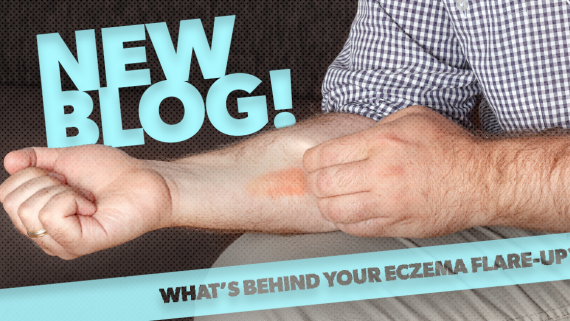











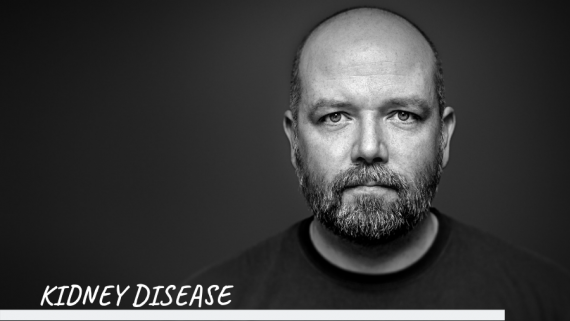








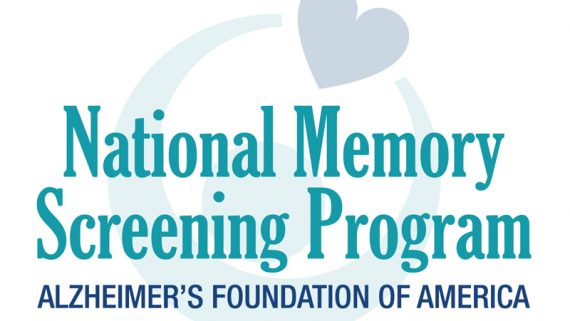





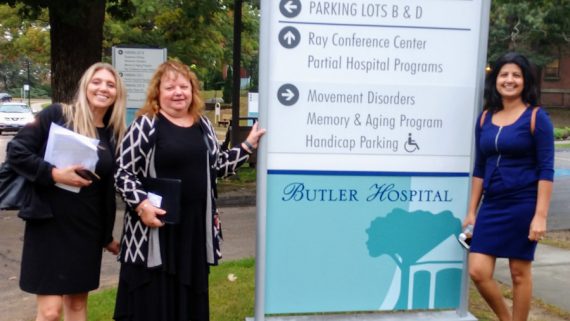



















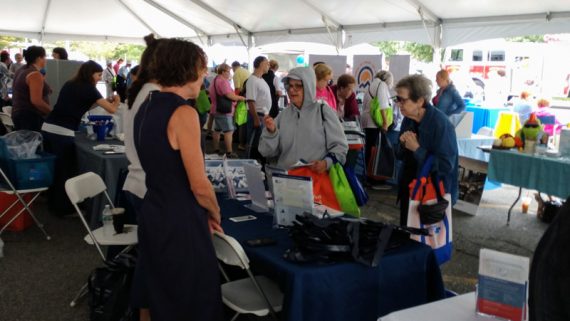
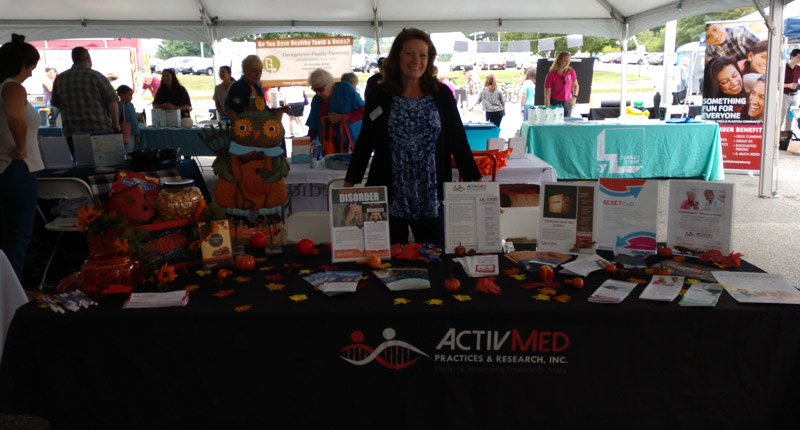
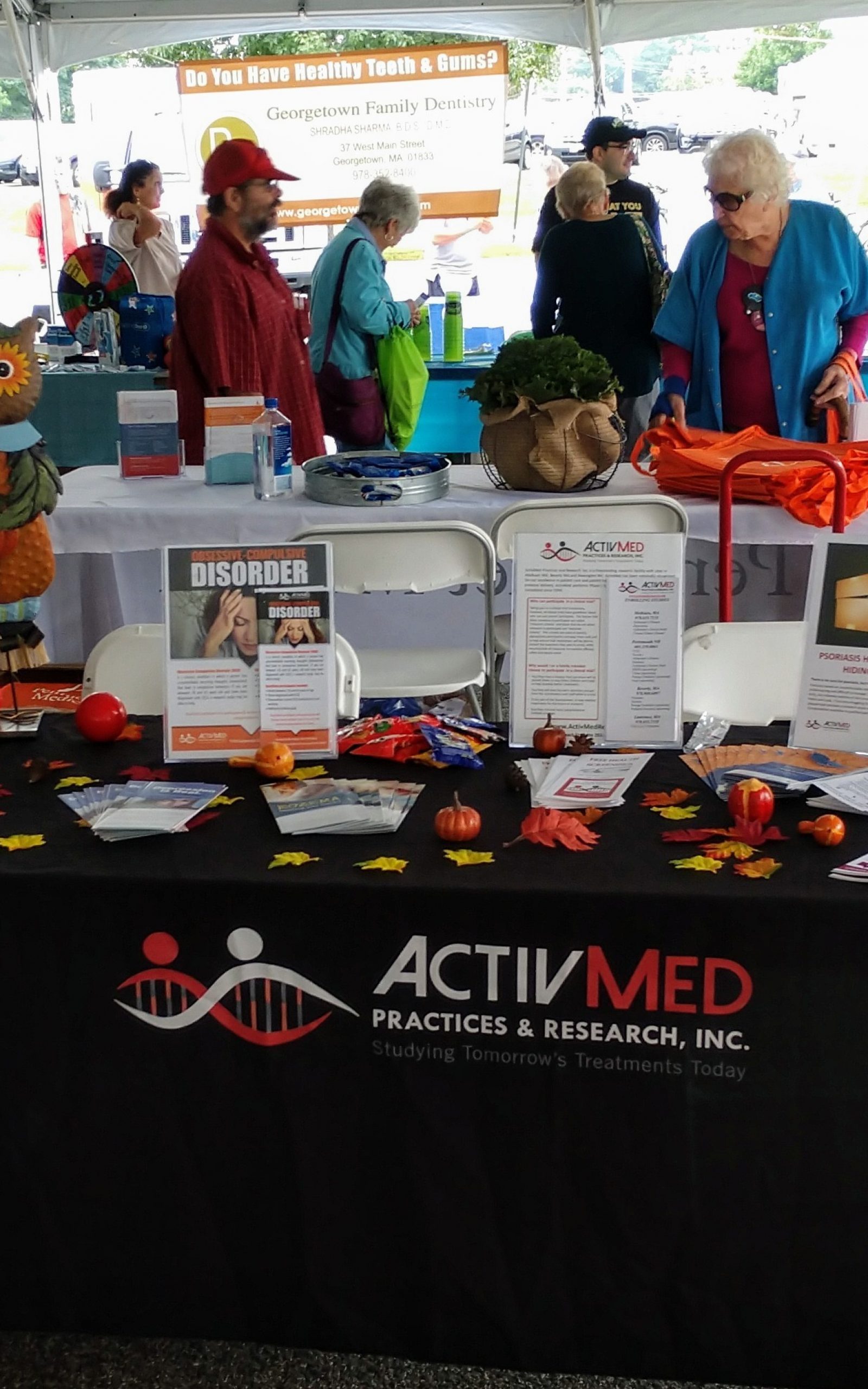








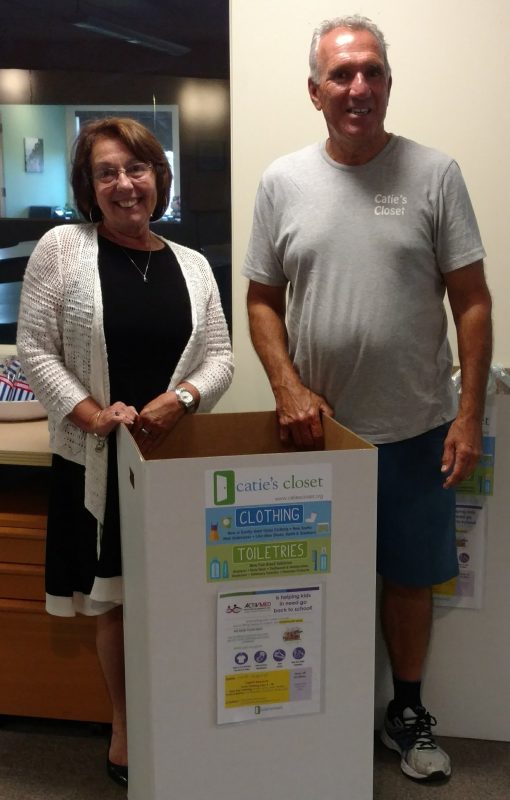
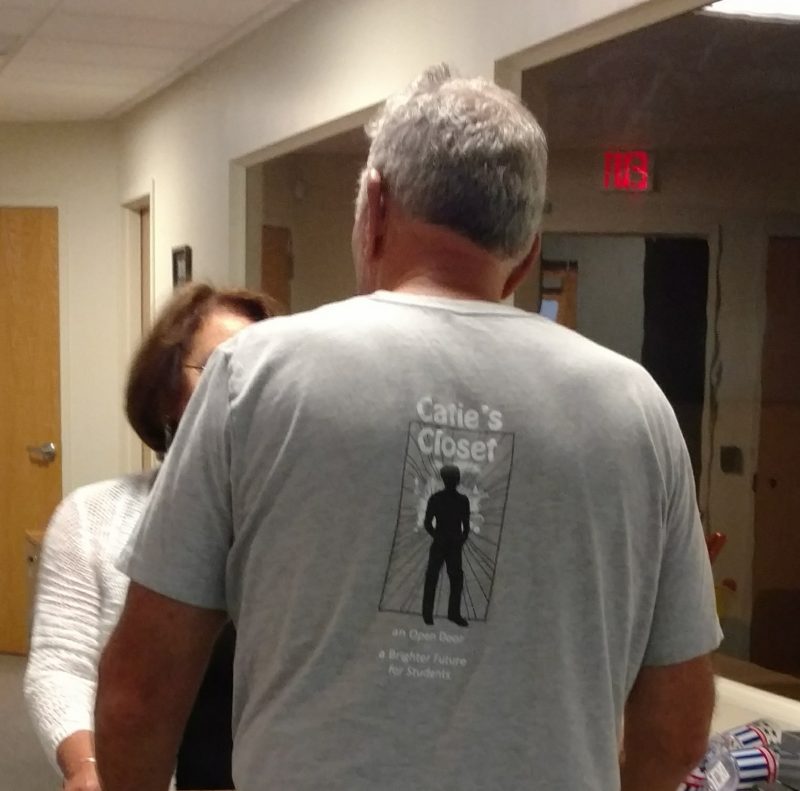
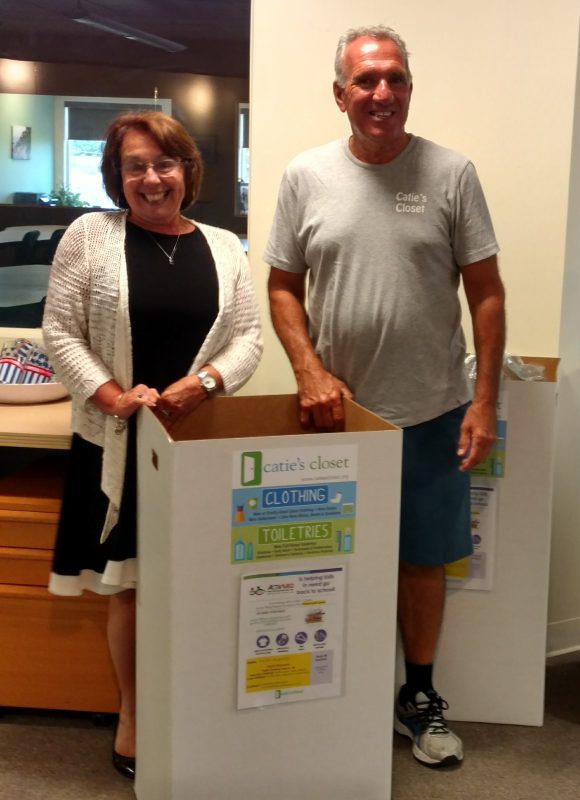



























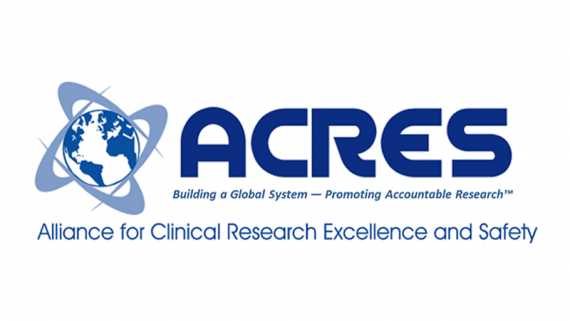















 (Stiffness, Shaking, and Tremors, and so much more)
(Stiffness, Shaking, and Tremors, and so much more)